Not so long ago, you had a baby and you think you won’t be able to go camping any time soon – you’re wrong! Camping with infants is very much possible. Parents are divided when it comes to camping with toddlers and infants.
Some parents think this as a dreadful situation, asking everyone why would they put themselves through that, but some parents are more casual and much less stressed about it, giving them advice.
If you’re a true camping lover and really enjoy being in the nature, don’t be scared to bring your baby with you. Of course, it will be a bit more challenging than it used to be, but that’s life, right?
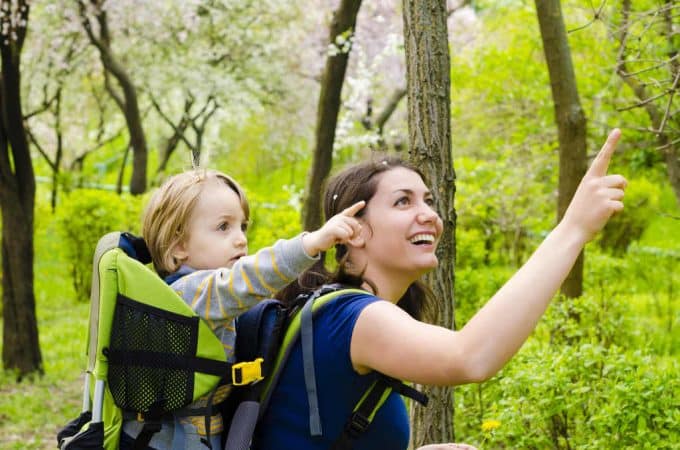
We have to be honest and agree that simple packing, throwing a backpack into the car, and heading down into the woods, won’t be that simple as it was before you had a baby, but it certainly won’t be as difficult, as some “perfect moms” say it would.
First of all, mobile phones and smartphones make emergency situations much less scarring and the fact that there are lots of kids backpacks and gear, not to mention portable “Pack ‘n play” cribs, makes taking your infant to camping a bit less stressful. How to do it then, you ask? Read on to find out!
Basic things you need to do before you head off
There almost isn’t a parent who has a small baby, that will leave the house without the bag of necessary things. A camping trip is no different, as you’ll carry almost the same amount of necessities as you would if you are heading to the park or a field trip.
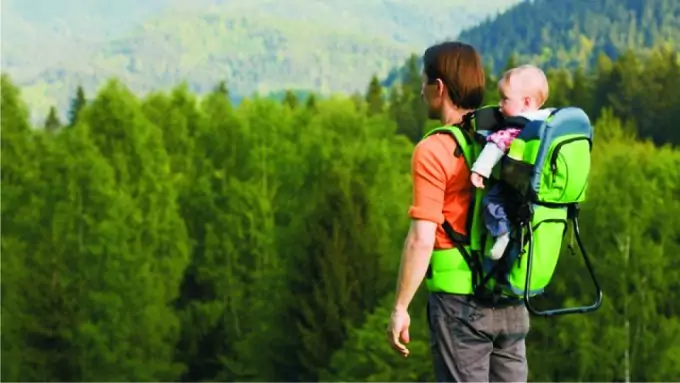
You should carefully research the destination where you plan on staying and plan for all the things that “might happen”. Having a detailed plan and lists of everything you need to bring with you is not over-planning.
It is pretty obvious that you need to carry a fair amount of stuff, but you already carry it anyway, so pack carefully. You are probably driving yourself in the woods, so you can stuff your car as much as you like, without having to worry how you are going to bring all those things with you.
Be smart about picking a destination
Keep in mind that your child or an infant, can’t withstand long car drives so choose a destination that is not that far from your home. Do some research on whether there is a supermarket or a grocery store near the campsite. If the answer is no, then we suggest you pick another destination.
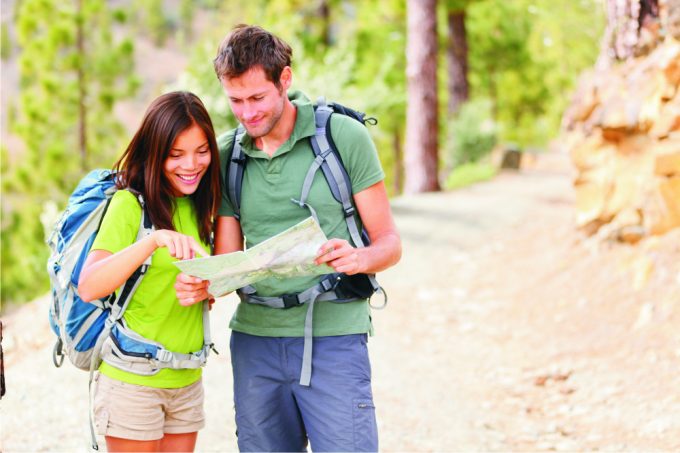
You don’t want to think about if you carry enough diapers and whether it is okay to change your baby now or a bit later because you don’t have enough diapers.
Search for campgrounds with running water and flush toilets, or perhaps rent a cabin or a room in the motel in the woods (just in case). Some national parks adjusted their resorts and made them kid-friendly, where you can rent a small cabin while some recreation areas and parks are placed by the strategically placed motels.
Rest before you take off
If you start your trip tired and anxious, there is no way this trip will be a vacation. Give yourself some time to rest, although, it is questionable that you’re going to truly rest unless you ask someone to take care of the baby while you take a 2-3 hrs nap, a long shower, and some time to enjoy the coffee/tea.
Leave early
Be prepared to give yourself enough time to arrive at your camping destination, especially long before dark. It is not a good idea to have a screaming kid and no daylight while you have to set up a camp and a tent. You will only stress yourself with why you even decided to go on camping with an infant and be sorry.
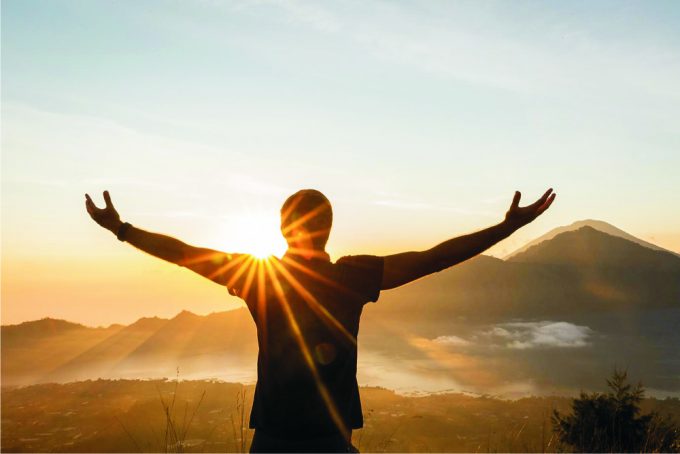
Basic things you need to bring with you
Keep in mind not to bring too much baby stuff with you. We know you will think hundreds of times “but what if I need this?” but you need to not get carried away once you start packing your infant’s things in the car. This is why we listed some basic things (and those that can assist in “making things easier”).
Hydration pack
A hydration pack system such as Camelbak water bottle won’t be so heavy to carry even when full. You and your baby, need to be hydrated when going on hikes or short walks.
The First- Aid Kit
Bandages, alcohol-free cleansing wipes or Curel, sunscreen for babies, bug spray for infants, etc. Every hiking gear store sells first-aid kits, and if you still don’t have it, make sure you buy one, plus some other necessities like medicine for infants, creme for dermatitis (kids often find Poison Ivy to be an interesting plant) and definitely something for bee stings, as this might be the worst injury that you will have to deal with. You can check our article on the best first aid kits for backpacking to guide you.
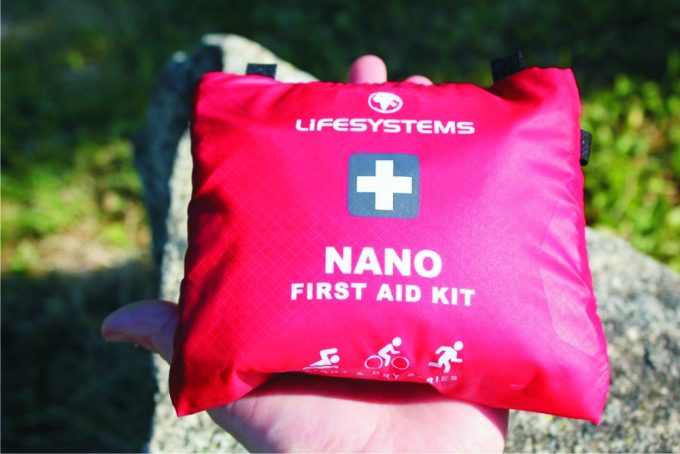
It is better to be prepared than finding yourself panicking around because you didn’t bring everything you need. Infants need more mosquito and sun protection. They can’t tell you if they feel sunburns or if they have been stung. This is why you need to use high, baby-safe SPF sun protection and a mosquito protection for babies. Apply it often during the day.
Food
If you’re still breastfeeding then this will be a fairly easy thing to do as you don’t have to carry around anything. You won’t have to bother yourself with filtering water, sterilizing baby bottles and mixing baby formula. If you’re feeding your baby on the bottle, don’t worry about it too much. It’s not a very hard thing to do. Just make sure you always filter water before you mix it with a baby formula.
If you don’t want to bother yourself with boiling and filtering the water, buy a pack of already treated water in any drug store that sells baby food. You also have to wash your infant’s face and hands as you don’t want your baby to get sick.
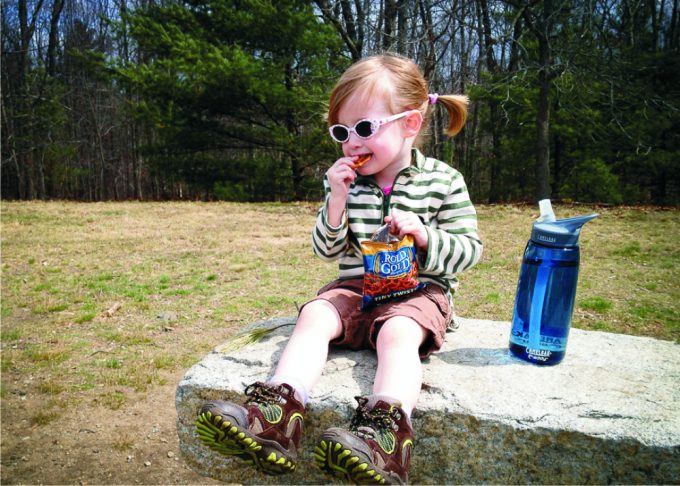
Besides water, you don’t have to worry too much about it. Also, a bit of dirt on your baby’s pacifier won’t do any harm and is actually a good thing. Just think of how you ate the dirt when you were a kid and you are still alive to read this article.
Of course, you will rinse the pacifier, you won’t let it eat dirt, but don’t worry about stopping and boiling it in the water every time the pacifier touches the ground. You can also carry a small pack of sanitizing tissues in your pocket or use a clean, bottled water to rinse it.
Clothes
Bringing a headwear is really important if you’re taking your infant to camping, as up to 20 percent of human’s heat is transmitted from our heads and you know that infants have bigger heads than their bodies, so they often lose heat faster than you would in cold weather. Also, keep your baby’s little toes and fingers covered as they also get cold faster than ours.
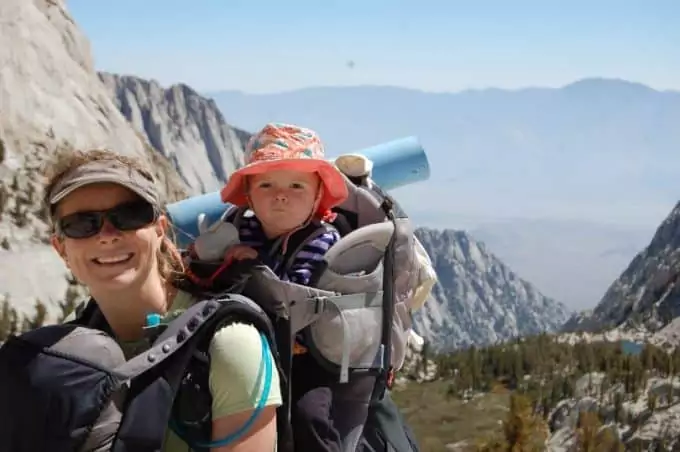
Keep in mind that they are not moving, therefore infants are not generating heat. You need to dress your baby in layers (hoods are okay if you dress it over a beanie, but is not a replacement because they don’t fit as close to the baby’s skin as they should in order to keep the body heat). Layered clothes will provide adjusting the clothing as per weather conditions.
If the weather is nice and warm, you need to make sure you have everything to protect your baby from overheating. You can simply lose some clothing that covers the body, and putting some shaded clothes is mandatory. Keep your infant hydrated and you can even use Pedialyte, as this is an encouragement for drinking, due to its subtle flavor. Your baby will love it.
A lot of baby clothes are made out of cotton material, which is actually not a good material to wear, especially during too hot or too cold weathers. Cotton transfers body heat faster and holds its moisture longer. Pick something that is made out of merino wool for the colder weather and synthetics for the warmer weather.
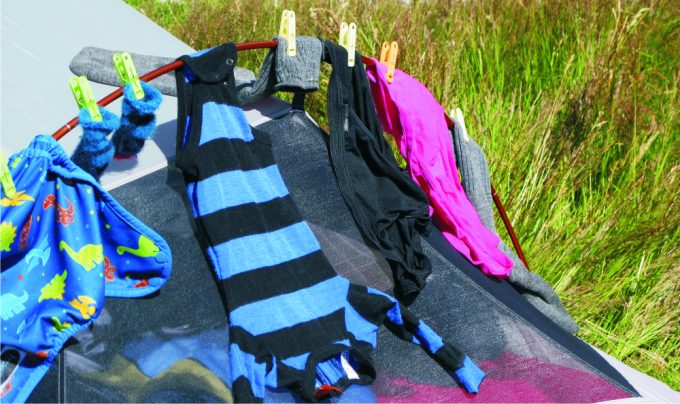
The material must be able to dry quickly because a wet cotton onesie can lower the body temperature pretty fast even if it is 80 degrees outside, which is not a good thing and it gets smelly really fast. Both synthetic and merino wool are materials that dry fast and even if you hand-wash your baby’s clothes, it will be dry before you know it. Don’t forget shoes! See our reviews of the best toddler hiking shoes to give you more options, so check it out.
Blankets
Bring a few blankets with you, as you will use them to cover your baby, lay your baby on the ground, shade a baby or cover yourself if nursing.
The Poop Collector
If you’re going on camping in the woods, be prepared for introducing a lot of hassle and extra weight with packing disposable diapers. Therefore, you will need a diaper bag. No, we’re not talking about the standard diaper bag that you’re carrying everywhere. We are talking about a dry, waterproof bag that is easy to close and seal. This is where you’re going to store all the used diapers and dispose it on your way home.
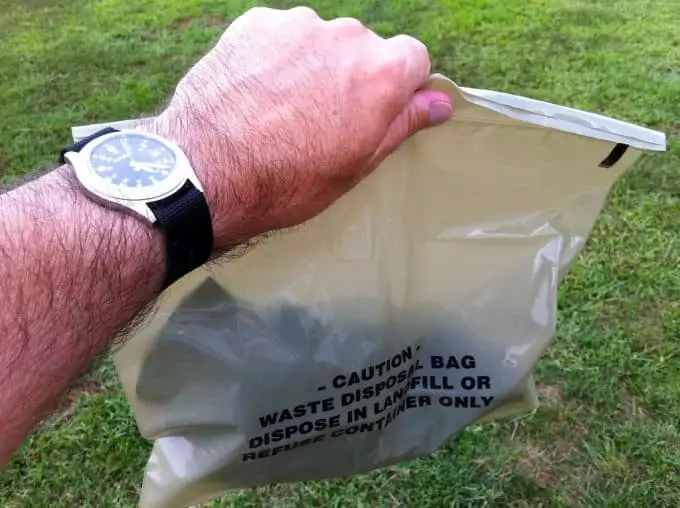
Why, you wonder? Well… You can’t leave dirty diapers in the woods, can’t you? Babies usually need 3-5 changes per day, if you plan to stay, let’s say 2 days, that’s 6 – 10 dirty diapers, minimum, you can’t leave in the woods. On your way home, find the nearest dumpster and empty the bag or, better yet, find a sanitary dump (the one RV travelers are using) and empty your bag there.
As for the cloth diapers, they are eco-friendly and all, but you still can’t leave them in the woods and, be honest, you don’t want to deal with hand-washing and drying all the dirty diapers outside during your camping vacation.
Infant Carrier or Toddler Backpack
This is something similar to your backpack, but is intended for babies and infants. You can use it to carry your infant on your back or in front of yourself and make sure you don’t carry a baby in your arms all the time. This is an especially smart thing to use if you are going on hiking as you’re gonna need free hands because you never know when you can trip over some rock or piece of wood. Here’s our piece on the finest baby camping gear for you to read.
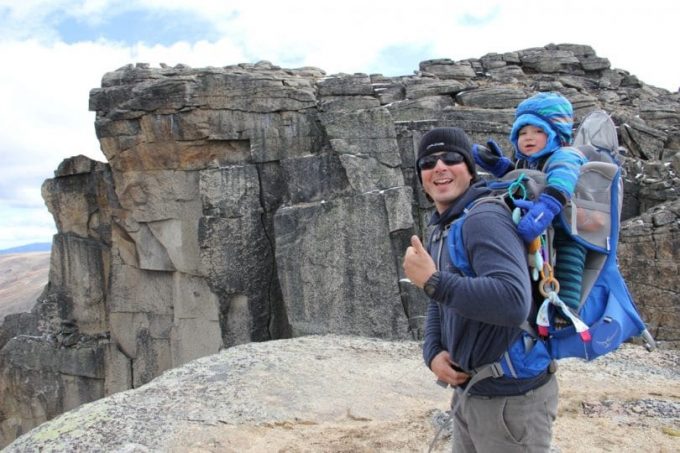
Choose a pack that has a safety harness in order to keep your infant from sliding in (if your baby is smaller) or sliding over (if the baby’s bigger)
“Pack ‘n play”
If your baby is an early walker or a crawler, a necessity like a “Pack ‘n play” will save you lots of nerves, especially if you choose to sleep outdoors. It has a functionality as a crib, but can also be a playpen during the day. This way you will have time to hang out or work something you enjoy around camp.
“Clamp-on booster seat”
Although this is not a necessity, this can also save you some nerves, especially if your child is really active and you are afraid to leave kids wander around the camp. This item is useful as a safe spot to put your kid down as well as eating.
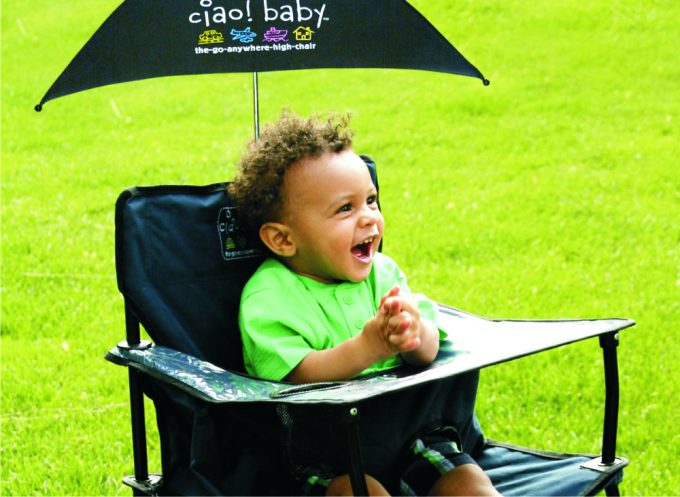
Foam Floor Tiles
An alternative to the blanket or a mat is the foam floor tiles. When comparing to a regular mat, kids floor tiles are more comfortable to crawl on. You can put them in the tent or even the play pen. It’s colorful and safe. It’s not heavy to carry around and although setting tiles on the ground inside the tent can be a drag, it’ll worth your while as you can freely let your baby crawl inside the tent.
Something to keep them occupied
If you stake out a big tarp you will have a nice, clean place for you to deal with any infant duties. You will see that it is a lot easier to go camping with infants than crawlers or beginners in walking. Bring a few toys for chewing, but keep in mind to keep them clean.
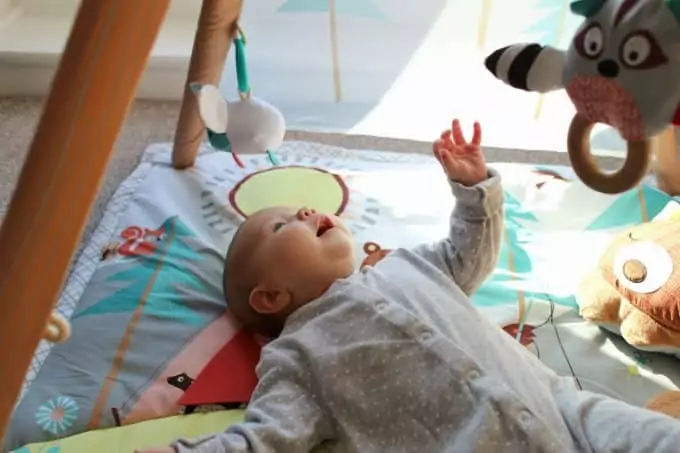
How to manage sleeping
Sleeping with infants is actually quite easy. Just zip together a few sleeping bags and put your baby between you. We understand that some parents are scared about rolling over the baby and have a weird feeling that they are going to crush them, but we never heard of this happening. If you are still not sure and uncomfortable of sleeping with your infant beside you then wait until the baby is a bit older before you go camping with it.
Another option is to use a baby backpack that we mentioned above. They improved a lot in the last twenty years as they hold an infant more comfortable and fit a human body better. So, investing in a good baby backpack might be a good idea here, or you can use a car seat that you can place inside your tent beside you.
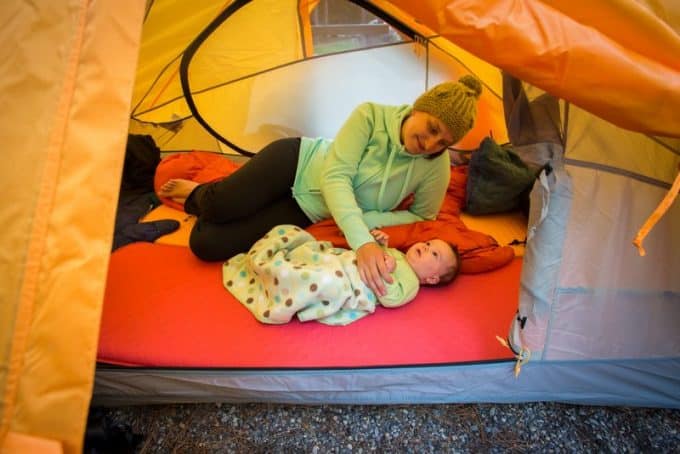
Simply use your common sense as you will know what works best for your baby. Babies and infants lived outside for millions of years through the history and they survived. Don’t be afraid to put a baby on the ground in a car seat or a backpack – a dingo won’t eat your baby.
Important Tips
- Many doctors and pediatricians suggest that a child can spend the night outdoors if older than 5 months so don’t get too ambitious and bring your 1-month baby to a camping trip. Use good judgment and common sense.
- Keep an eye on your infant all the time. No matter what you do, there are lots of dangers outside, especially in the woods and in a campsite. Don’t leave it out of your sight.
What have we learned?
Keep in mind that kids, even though they are out camping with you still need to sleep and eat regularly, so make sure you’re on their schedule and put your infant to sleep at its usual time. Don’t forget the naps, they are equally important too.
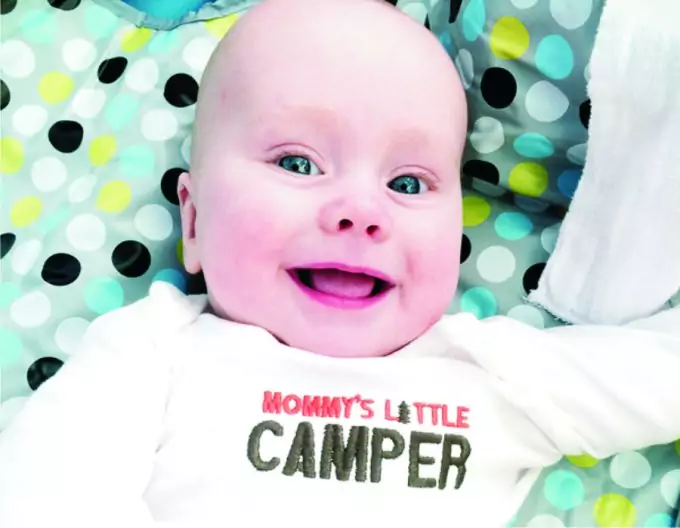
Check if your baby can take a nap in your front carrier, if it can – great; if not – plan your activities later or around your baby’s napping and eating schedule. This way you won’t have to unnecessarily stress yourself. Enjoy sharing some time camping with your infant. Check out our article on adventure hiking with your kids to give you more insight on the topic.
Hopefully, you like our article on camping with an infant. We would love to hear your stories about camping with your kids, the good, the bad and the ugly plus some interesting pictures. In case we maybe missed something – a good idea or a recommendation is always more than welcome.
Please leave a comment below, share it on Facebook, Twitter and other social media profiles with your friends and family and don’t forget to tag us on Instagram while posting your camping pictures. Good luck with bringing your infant with you, stay safe and happy camping!

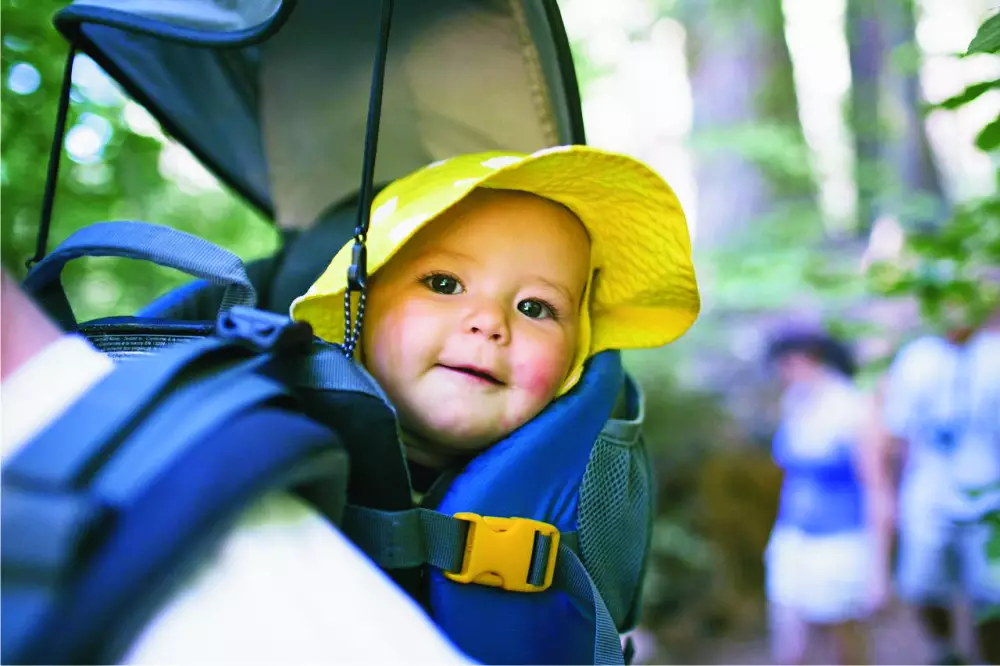
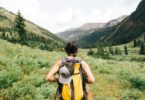
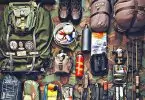

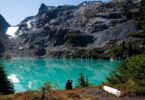
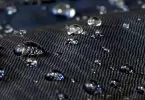
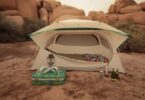
Nature should be enjoyed by everybody, the young and old alike. In an age where all that children know about is technology and indoor activities, I think exposing your child to the wild will be quite refreshing for him or her. However, the task for the adult is showing the children why spending time outdoors is much better than indoors, and the best way to show them is doing it the right way.
Exactly! Thanks for sharing!
I don’t think going for a hike with a toddler should be a problem for any avid hiker out there because by now, one should have learned all the do’s and don’ts of hiking. However, I would advise people to go on several hiking exceptions first before taking a toddler so that they can know what to expect in the woods, and what to carry with them there instead of taking a toddler outdoors and getting stuck there.
You must be careful!